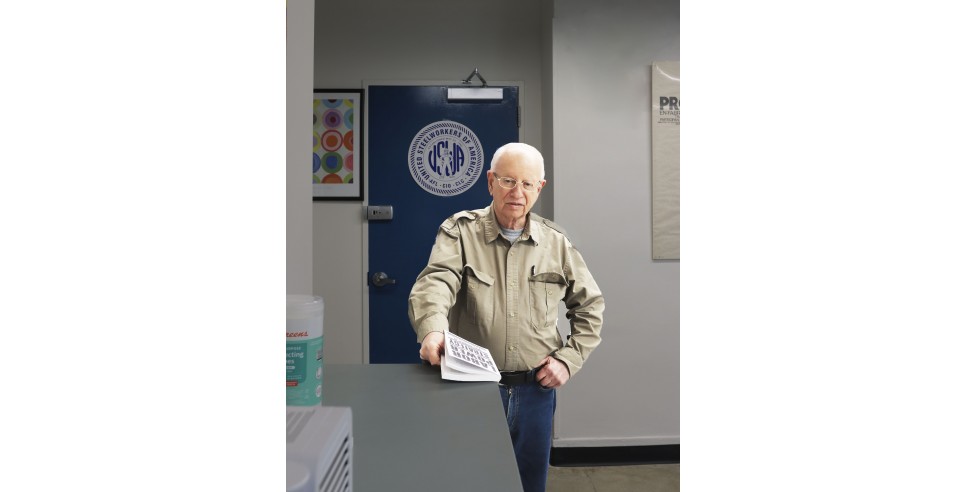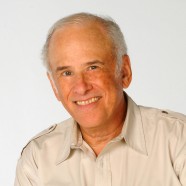
When you walk into Starbucks and order your latte, the barista behind the counter prepares it on the spot. You pay $4.65 and walk to a table to sit, enjoy your coffee, and perhaps check your email on your phone. You have probably never considered how that barista is being treated by the company, but you might have heard that many of Starbucks’ employees have been fighting to be represented by a union—to get better wages, decent benefits and improved working conditions.
Maybe you have just looked outside on your porch to see if the package you ordered from Amazon has arrived. You are well aware of the great service you get from your Amazon delivery person, and you’ve also probably heard that some Amazon workers are also fighting to be represented by a union for better working conditions.
Companies like Amazon and Starbucks will fight tooth and nail to keep labor unions out, and often they launch multi-million-dollar, anti-union campaigns to discourage workers from joining a labor union.
This is about the time that labor union organizers might call someone like Michael Locker, President of Locker Associates, a union friendly business consulting firm located in New York City. Locker Associates is often called upon to research a company to see how to effectively combat an anti-union campaign. Locker is also asked to make a case of why a union will benefit both the company’s employees and ultimately the company’s bottom line.
Mike Locker’s firm works closely with many different labor unions in multiple industries, often in conjunction with the union’s research department. The goal is simple: Find a way to make a positive change that workers deserve, while keeping companies healthy so both can reap the rewards of a successful business.
Mike Locker’s entire background, including his education, has evolved around what he calls “social justice.” People like Mike have been working diligently all their lives to try to bring about more equal treatment of workers, especially blue-collar workers who are an integral part of the U.S. economy. He says that “unions are a function of the economy” and that “industrialization led to many abuses and bad practices in various industries.”
Incidents like the Triangle Shirtwaist Factory Fire in 1911, where the company locked fire escape doors to the stairwells, a common practice at the time to prevent workers from taking unauthorized breaks and to reduce theft. The tragic fire, where 146 workers, most of them immigrant young women and girls, lost their lives, led to the formation of the International Ladies’ Garment Workers union to prevent similar tragedies in the future.
Some businesses treat their employees well on their own, but most must be reminded to treat their workers with respect and dignity. Mr. Locker has made a successful business out of showing companies how they can improve their business and still offer good wages and benefits, a voice in the workplace and a safe work environment.
Locker Associates is located a stone’s throw from City Hall Park in New York City. You have to negotiate the canyons of Lower Manhattan to find Mike sitting at his desk doing research on various companies. Labor unions (sometimes in a joint effort of both management and union) hire Locker Associates to improve company performance by solving production, marketing and financial problems.
In 1982, Locker met with the CEO of Eastern Airlines, former astronaut Frank Borman, whose company was in dire financial straits. Eastern was blaming union contracts for their troubles. So Locker, retained by the Machinist Union, worked with Eastern’s financial partner, Lazard Freres, and remarkably discovered that the union contracts had very little to do with the company’s problems.
Instead, competition from newly established airlines, route structures, the heavy debt burden and rising oil prices were actually undermining Eastern Airline’s performance – all management issues that had nothing to do with the labor contracts.
Locker got to the bottom of the problems facing Eastern by interviewing union workers, middle and senior managers and outside experts. And to help solve the immediate financial crisis Locker helped convince the unions to make some concessions to encourage the other major Eastern stakeholders – banks, aircraft suppliers and major vendors – to come to the table and make some concessions.
Remarkably, Mike did all this research before Google or the Internet. This level of research is what secured his reputation in the labor field as someone who was reliable and honest about addressing either a management problem or a union one. His analysis and reporting and problem-solving served as his entrée into over 200+ projects over 40 years involving labor unions, government clients, financial institutions and others that experienced unique problems. And Locker Associates continues to provide valuable services to their clients.
The key to Mike’s success is solid research. A company will often complain that their union contract is a burden and therefore they will seek an immediate wage concession, threaten to close a facility, or refuse to sign a contract at all (as is the case with Starbucks and Amazon). Or a company might insist that the demands of workers are making it more difficult for them to run their business. Locker has often discovered, through his research, that a company’s financial problems are the direct result of poor management rather than the cost of labor.
Mike has been an “activist” all his life, starting with his early education at the Little Red School House, a primary school in New York City, where Mike grew up. The school’s emphasis on humanity, human rights, democracy showed how greater wealth equality benefits everyone. This kind of agenda is often the bedrock of social justice, and it’s currently growing in importance in our society today.
One of Mike’s main arguments for labor unions (and the right of workers to be represented), is that “humans are worth the cost.” Without workers., who make up the majority of any given population, there would be no company to make or move goods, and to provide services for people. So, it benefits a company and society to treat their workers with dignity and respect.
Locker took these basic, humanistic ideas he learned in grade school with him when he enrolled in Earlham College, a Quaker institution in Richmond, Indiana. He joined groups like Students for a Democratic Society (SDS) and worked with Tom Hayden, who was already battling the “military-industrial complex” in 1964. One early project researched the power structure of the sugar industry in the Dominican Republic in 1965 during the time when the U.S. invaded the country to stop a left-wing uprising.
In order to begin to help workers get representation in almost any company, Locker says, “You need to do a lot of research into that company’s tentacles” – identify the other institutions that provide support for the company and uncover their strengths and weaknesses. A good researcher will find out where the company does its banking, what law firms it uses, who its insurance companies are, its advertising agencies, as well as who owns the company’s large blocks of stock and debt. All of these components have a lot to do with the eventual success of any company, including how it treats its employees.
Today workers at both Starbucks and Amazon continue to work without union representation. They can be terminated without just cause, have their work schedule arbitrarily altered, demoted to part-time on a whim, and forced to work in unsafe conditions. In this sense they are like what has been called “gig workers” – people who work for themselves, like an independent contractor, but report to a company that has no loyalty or obligation to their well-being. According to Locker, companies need to see that keeping workers with stated job guarantees will ultimately benefit the company. Mike is correct when he says, “You can’t have a stable workforce when workers are considered disposable.”
The entire underlying notion is one of treating workers fairly. “Fairness…that’s what social justice means,” according to Mike Locker. “And this justice should include a contract that companies make with their employees that benefits everyone in the long run.”
About Locker Associates Locker Associates worked with Eastern Airlines in the 1980s, Amalgamated Clothing & Textile Workers in the late 1970s, United Steelworkers in the 1990 and 2000’s, trucking and warehousing with the Teamsters in the 2000’s, the NYC Building & Construction Trades in the 2010’s, and a long history of projects with the Airline Pilots, Musicians, Postal Workers, Autoworkers, Mine Workers and many others, has cemented the role of Locker Associates as a driving force behind labor relations in the U.S., and the success of their clients. For more information, go to their website, or contact Mike Locker: Email is: lockerassociates@yahoo.com, Phone: (212) 962-2980.
All photos of Mike Locker are the courtesy of William Lulow.









